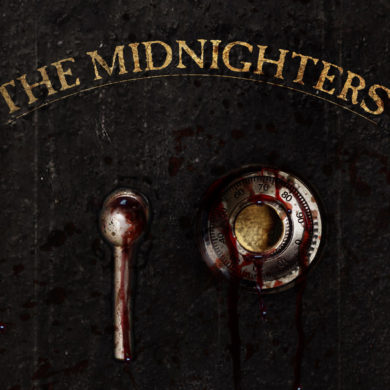Published Date: 03-09-16
By: Wayne Kramer
Fifth in the series.
The day my most recent film, Pawn Shop Chronicles debuted on Video-On-Demand (which was on the same date as its theatrical release), the film was recorded in a perfect HD quality copy from one of its VOD rentals and illegally uploaded to the web. By the end of the first day of its availability on VOD, I could download the film for free from one of several thousand illegal links. I’m not exaggerating when I say several thousand links. Page after page of illegal download sites (torrents, streaming sites, and file lockers) were popping up one after the other. The film was also uploaded to YouTube multiple times and fake versions can still be found that redirect you to a site where you can illegally download or stream the actual film. A Twitter search of the title revealed that fans of the late Paul Walker (the star of the film) were brazenly posting torrent links for all interested parties. One fan posted on my Facebook page to tell me how much he enjoyed the film, while at the same time admitting to having illegally downloaded it. Even as I write this, if you enter “Pawn Shop Chronicles download” into Google, you’ll get 114,000 results, the second choice listed being for an illegal torrent site (as are most of the links).
Now here’s the thing: to this day I have never received any money for directing “Pawn Shop.” Both Paul Walker and myself deferred our fees to put the money back into a financially strapped production. The film has not made back its five million dollar budget and the financiers of the film have not come close to recouping their original investment. About two months ago when I made my most recent inquiry, I was told “Pawn Shop” is still several million dollars in the red, translated as: I will never see a dime for all the work I put into the film. The Directors Guild of America even commissioned my salary on the film – money which I was never actually paid since my fee was deferred – and thankfully the producer covered my DGA costs or I’d personally be way into the red on the film.
I’m just bringing up the case of one low budget film here. ALL of the films I’ve directed have been pirated with a loss in residuals to myself that is likely in the hundreds of thousands of dollars. For each one of them you can find hundreds if not thousands of illegal links with a simple Google search of the title. Shortly after Paul Walker’s death, a guy named Brandon Donovan uploaded “Running Scared” (a film that I wrote and directed, which also starred Paul Walker) in its entirety on YouTube in HD quality. His supposed reason for posting the film was to ‘honor Paul Walker.’ By the time I became aware of it, the film had been viewed over 200,000 times (with another copy having been viewed 260,000 times and being up on YouTube for more than a year). I identified myself as the writer and director of “Running Scared,” to Brandon and politely asked him to take down the film. His response was that “[I] should go f*** [my]self.” I tried reporting Brandon’s upload of “Running Scared” to YouTube as copyright infringement, but because I’m simply the writer and director of the film and not the copyright holder they would not take any action to remove it. Now it would be obvious to most Google/YouTube employees that “Running Scared” is the property of New Line/Warner Bros./Media 8, etc., simply from the logos featured on the front of the film or a quick IMDB search. But Google has chosen to wrap themselves up in red tape and a labyrinth bureaucracy when it comes to acting on reports of piracy. I had to waste a whole lot of time tracking down someone in Warner’s legal department to get YouTube to take action. And when they finally did remove the film, another copy took its place within days. Let’s also keep in mind that the entire time the film was illegally available on YouTube, Google was monetizing it through advertising. I don’t believe Warner Bros. or anyone involved in the making and financing of the film saw any of that money.
I’m not a rich guy. I work hard like everyone else to provide for my family. For the most part, I work in the low budget arena. If I’m lucky, I get to direct a film once every four or five years! And when I do direct a film, half of my fee typically goes to my agent, manager, and guild commissions, as well as legal fees and taxes. With the down-sizing taking place in our industry over the last few years, budgets have become significantly smaller along with talent fees. This is happening in no small part due to piracy. A film that I directed ten years ago, which had a budget of fifteen million dollars, is expected to be made today for five million and under. And, yet, the producers and audiences demand the same level of production value as the fifteen million dollar film. I can tell you that is simply not possible. I’m required to do in 20 or 25 days now what I had previously been given 45 to 50 days to achieve – and even that was tight given the ambition of the material. You also have less money to spend on production design, set dressings, costumes, props, visual effects, music, etc. The whole thing becomes a downward spiral because budgets have been squeezed so much due to the losses incurred by most lower budget films – and, again, a huge part of this comes back to piracy.
Our children are growing up in a culture today where music and movies are free for the taking. They see nothing wrong in illegally downloading entertainment and swapping torrent links on social media. If anything, their popularity is reinforced by making as much free content available for downloading among their peers. The films that are getting hurt the most are the latest independent films that ten years ago were given the chance to thrive in theaters with limited releases and a healthy DVD afterlife. The future doesn’t look good for the next “Pulp Fiction” or “Memento” or “Boogie Nights.” I remember spending a hundred dollars to buy a laser disc of a film I loved back in the nineties—and that’s when I could barely afford to feed myself. Today, that would be unheard of. High Definition content on Blu Ray typically sells for under $20 and often times for as low as $5 or $6 after a year or two. And still these films are ripped-off online. How is this a sustainable model for any business?
The sky is indeed falling and we need many hands to help prop it up. Please join us in getting the message out: if you enjoy our work and wish to see more of it in the future, please don’t steal it.
Wayne Kramer is a film director, screenwriter, and producer. Kramer has written and directed films such as the 2003 film The Cooler, which garnered an Oscar® nomination for Alec Baldwin, as well as two Golden Globe® nominations for Baldwin and Maria Bello.
If this message has touched you, please send us your own story and join CreativeFuture.
When you StandCreative™, you don’t stand alone.




